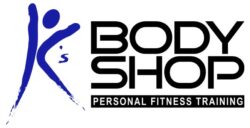 Exercise is Key to Overall Wellness & Quality of Life
Exercise is Key to Overall Wellness & Quality of Life
You know that exercise is the key to physical fitness, especially later in life.
But did you also know that fitness is, in turn, the key to wellness, or our overall wellbeing, as we age?
That’s right. Having strength, stamina and agility well after 50 is integral to maintaining our quality of life at any age. Not only does it improve our physical health, but fitness also is the bedrock of maintaining the other components of wellness, including our emotional and spiritual lives.
We’ve always been told if we have our health, we have everything. If we’re fit, we can maintain our independence and zest for living at any stage of life.
What is Wellness?
Maybe you’ve heard wellness discussed and wonder what that word means.
The National Institutes of Health (NIH) writes “People often think about wellness in terms of physical health — nutrition, exercise, weight management, etc., but it is so much more. Wellness is a holistic integration of physical, mental, and spiritual well-being, fueling the body, engaging the mind, and nurturing the spirit.”
There are many definitions, all generally meaning the same thing. We like this from one from the University of California:
“Wellness is an active process of becoming aware of and making choices toward a healthy and fulfilling life. Wellness is more than being free from illness, it is a dynamic process of change and growth.”
Most experts list six to eight categories. Feel free to adapt the list as necessary but remember to keep it as broad and robust as your life. Here’s the breakdown provided by the International Council on Active Aging:
- Physical – Exercise and nutrition are essential to maintaining independence and health. Period.
- Emotional – “coping with challenges and behaving in trustworthy and respectful ways.”
- Intellectual/Cognitive – “engaging in creative pursuits and intellectually stimulating activities.”
- Professional/Vocational – using your “skills while providing personal satisfaction,” including as mentors, volunteers, caregivers and more in retirement.
- Social – “interactions with family, friends, neighbors and chosen peer groups.”
- Spiritual – “living with meaning and purpose in life, guided by personal values.”
- Environmental – practicing habits that promote a healthy environment; understanding how different environments affect you.
Why Habits Are So Important
The NIH makes no bones about it.
“Habits very much influence health, well-being, and quality of life. If you are striving to improve these, you need to think about habits, because if you change your habits for the better, you change your life for the better,” it says.
Making good changes and reinforcing good habits are helped by strategies like scheduling, accountability, convenience, and more.
Habits are also things that you tend to do on “autopilot” without having to spend energy thinking about what you should do.
In other words, being part of a gym or fitness community is an invaluable way to build the solid wellness you want and deserve.
What to Do Next
Are you ready to learn more about how exercise is key to overall wellness and how it can improve the quality of YOUR life? Let me help you start on your lifelong journey to wellness!
Join the FREE VIP list to get regular health, fitness and nutrition info delivered right to your inbox every month.
You’ll also get exclusive offers for upcoming classes, events, and opportunities that may not even be available to the general public!
It’s FREE to join and you can unsubscribe at any time 🙂

 Exercise is Key to Overall Wellness & Quality of Life
Exercise is Key to Overall Wellness & Quality of Life